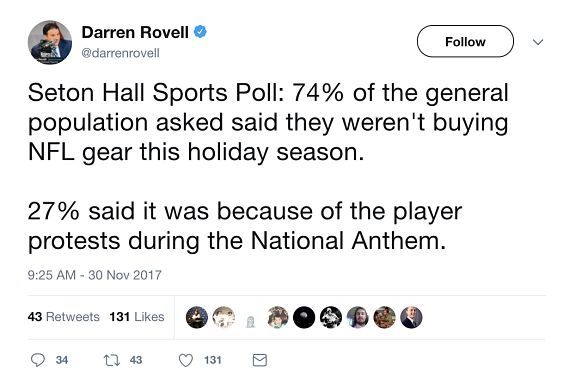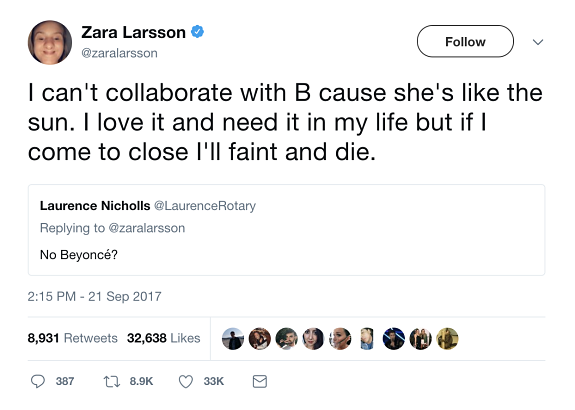
Like your average Millennial, it’s hard for me to imagine a world without the entertainment and distraction of Twitter. After all, Twitter is a virtual library of prime LSAT-worthy argumentation just waiting to be deconstructed. Sure, there are the few absolutely faultless demi-gods of Twitter (I’m looking at you Ryan Reynolds), but there is also a noticeable amount of argumentation on Twitter that is rife with fallacious reasoning indistinguishable from the stimulus of your standard Flaw question.
The LSAT may seem like an intimidating exam because the process of evaluating arguments feels unfamiliar. The important thing to remember is that argumentation, and with it, flawed arguments, are a part of our everyday lives. Once you’ve mastered the identification of fallacious reasoning on Twitter, there’s no stopping you from ID-ing the same fallacies in the ever-so-slightly less entertaining stimuli on the LSAT.
Let’s take a look at a few of the opinions expressed on Twitter and break down the fallacious reasoning plaguing these arguments.

Alec Baldwin appears to draw the conclusion here that American Airlines is going bankrupt because they did not let him play Words With Friends on the plane. I spot a causation fallacy — If American Airlines is “bankrupt,” and American Airlines doesn’t let Baldwin play Words With Friends, the correlation between these two events does not necessarily prove that one caused the other.

Are we getting some circular reasoning here? Nick Cannon was spanked. That is why he will spank. That is why it is good … he was spanked. That is why he spanks. A vicious cycle, and another example of fallacious reasoning.

Here we’ve got a pretty blatant sampling fallacy — the only way that the 27% figure from ESPN reporter Darren Rovell is relevant is if all of those people were planning on buying a jersey before the player protests. Also, the 74% not buying NFL gear implies that 26% are at least considering buying NFL gear for Christmas, which seems extremely unlikely. Unless the NFL is having an unprecedentedly fortuitous year, and I’m going to be opening significantly more Oakland Raiders gear than expected, this poll can generally be deemed unreliable.

This one is a part of a larger argument championed by rapper B.o.B. that the earth is flat, and that the idea of a round earth is a NASA conspiracy. But with this tweet in particular, B.o.B. challenges his audience with the idea that if the cities pictured behind him don’t demonstrate a curve in the Earth, the Earth is not curved. So what we’ve got here is a rather creative absence of evidence fallacy — remember, just because one thing doesn’t prove a claim to be true (that the Earth is round), that does not mean the claim is automatically false.

Here, Zara Larsson is making a relatable, but fallacious analogy between a Beyoncé collaboration and the literal sun. These two things are not substantively similar enough to be relevant in her argument. In other words, I’m here for any and all collaborations with Queen B.

Without falling down the rabbit hole of analyzing the reasoning underpinning Donald Trump tweets, it’s worth taking count of the flaws apparent in even this one example: (1) There’s a perception versus reality fallacy — just because everyone “knows” CNN is unreliable doesn’t actually make it unreliable. (2) There is a logical force fallacy — just because there are “many” more trusted organizations than CNN doesn’t make CNN the “LEAST TRUSTED NAME IN NEWS.” (3) Finally, there is a fallacy of equivocation — just because they make mistakes doesn’t mean they are engaging in “fraud.”

And last, we have an ad hominem fallacy. As FLOTUS has reminded us, cyber bullying is wrong, and attacks on a person just because they look like a big sulky baby amounts to a personal attack, and therefore, does not form the basis of a valid argument against the position taken by another person.
Even if you couldn’t put a name to the above fallacies, pretty much all of these tweets seemed pretty dumb and unpersuasive, right? Remember, the LSAT is full of similar unpersuasive arguments. If you can spot these common fallacies in Twitter, you can certainly spot them on the LSAT.




